The sultan and the showgirl: A tragic tale of star-crossed love
- 31 October 2015
- Kent
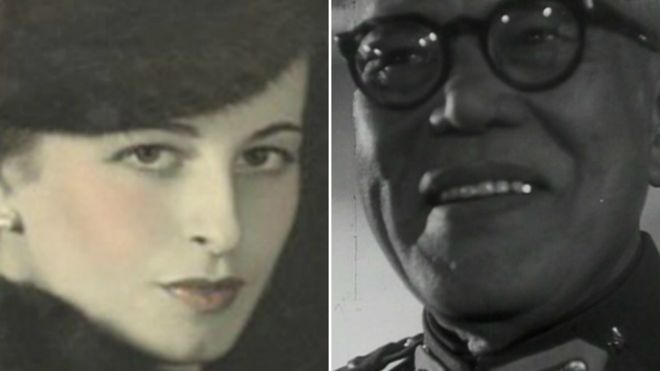
It is 75 years since Cissie Hill, the lover of one of the word's richest men, was killed in a German air raid. At the time of her death the dancer's relationship with the Sultan of Johor was one of the world's most scrutinised romances. But who were they and what was it about their story that captivated so many?
It was an affair that scandalised polite society and set tongues wagging across the world. She was a British showgirl of humble origins, while he was a foreign ruler born to great privilege and unimaginable wealth.
The love affair between Lydia Cecilia "Cissie" Hill and the Sultan of Johor, which had begun in the luxury of the Grosvenor House hotel in London in the 1930s, continued to cause a sensation even after the outbreak of World War Two.
It was all to end beneath the rubble of a building that suffered a direct hit from the Luftwaffe while 27-year-old Cissie was out shopping in Canterbury, in October 1940.
She was identified by the exquisite jewellery she was wearing, given to her by the sultan.
Cissie had left her home town of Herne Bay in Kent for the West End in 1934, landing a prestigious cabaret job at the Grosvenor House.
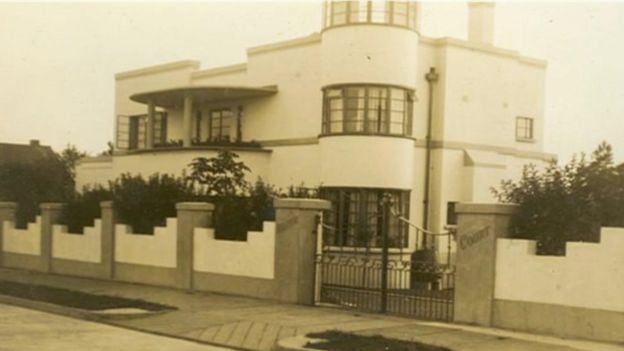
Historian Emma Muscat explained: "They didn't just take any old dancer; you would have to be excellent at singing, acting and dancing."
It was there that Cissie first caught the eye of Ibrahim, Sultan of Johor, a "fabulously wealthy" Malay ruler in his 60s, who was staying at the hotel.
Born in 1873, the sultan was an Anglophile who continued his father's friendly relationship with the British government.
Author Colin Smith said the tall Eurasian sultan was "one of the richest men in the world", having made money selling rubber to the car industry.
He said: "When he came to power, he was only 22 and a spoiled, headstrong boy. His main passions were tiger shooting, horse racing and women. He began to take sexual safaris."
And it was on one of these world tours that he became smitten with the showgirl. But there was a problem - he was still married.
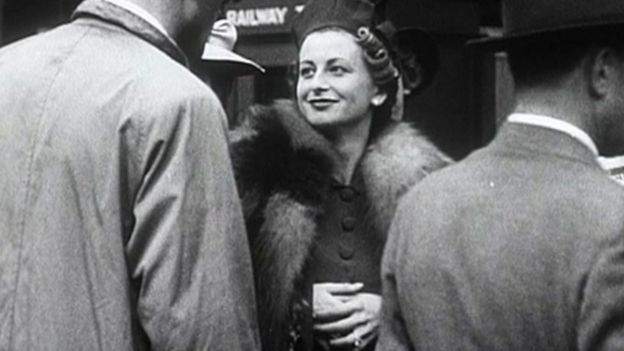 AP
AP
As a Muslim he could have had as many as four wives at any one time, according to Dr Mulaika Hijjas from SOAS, University of London.
"He had a number of different wives from a number of different backgrounds, including one, Helen Bartholomew, who was born in Glasgow.
"The sultan was married six times in all but I don't think he filled up the whole complement, though - as some of his wives died and some were divorced."
The sultan kept his affair hidden from his wife but showered Cissie with expensive gifts, including valuable jewellery and a large Art Deco house with sea views in Herne Bay, called Mayfair Court.
Although the two tried hard to keep their affair quiet, the romance was thrust into the public eye after a burglary in which £5,000 worth of jewels - worth some £290,000 today - were stolen from Mayfair Court.
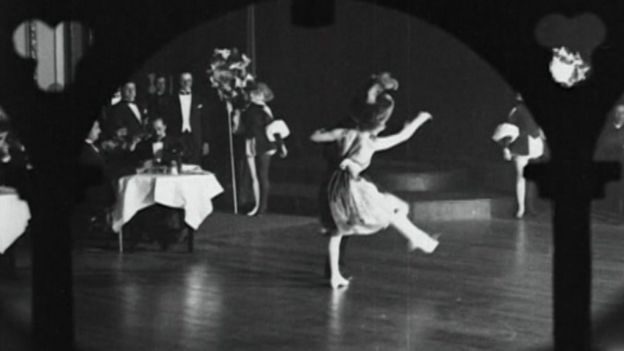 British Pathe
British Pathe
A number of items bore the sultan's initials and the relationship was exposed, causing a media sensation.
Emma Muscat explained: "The burglary takes the relationship from something that has operated under the radar and now it is in the public forum.
"In modern parlance we would say it has gone viral."
The world's press became fixated on the relationship, with photographers and reporters following the pair everywhere.
In 1938, Cissie was pictured wearing what appeared to be an engagement ring, but despite "rumours of an engagement no announcement was ever made", the New York Times said in 1940.
Ms Muscat said: "This is where the chain of tragic events starts to unravel. The sultan is under immense political pressure from the British government - they are not happy about the relationship.
"He is also under pressure from Johor. It's not good."
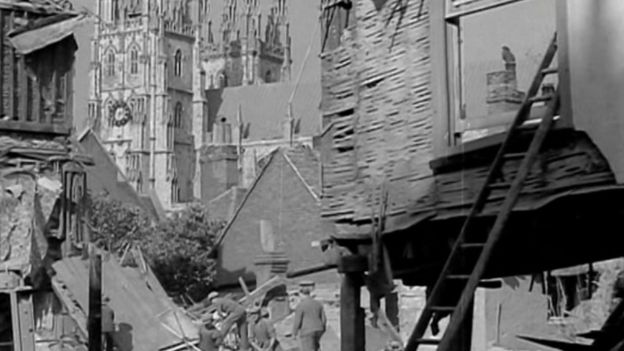 British Pathe
British Pathe
Colin Smith said the British community in Malaysia and Singapore was "outraged".
"They had put up with his marriage to Helen Wilson in 1930, who was a widow some 16 years his junior, but when he began his affair with Cissie, who the Daily Express described as a platinum-haired ex-glamour girl, they began to ostracise him, and turn down his invitations to official functions.
"At first he retaliated by firing all his British employees, then he planted shrubs on the golf course [used by the British] but in the end he gave in and broke off the engagement.
"But he very obviously adored her."
But in October 1940, disaster struck while Cissie was on a shopping trip to Canterbury when German bombers targeted the city.
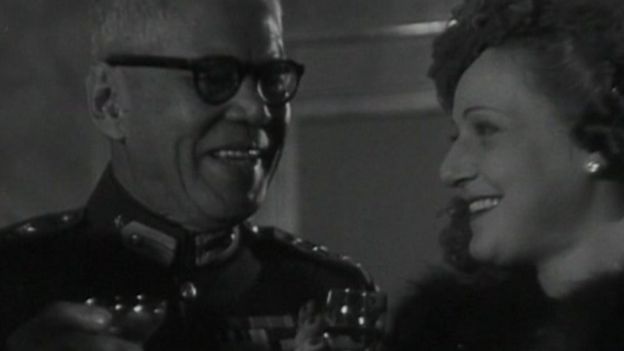 British Pathe
British Pathe
Ms Muscat said Cissie was killed instantly. "The only way that her body could be identified was by the jewellery she was wearing that the sultan had given her.
"And it was the sultan and Cissie's mother that identified the body," she said.
After Cissie's death, the heartbroken sultan built a tomb to her on a hill above Herne Bay. He would later say that it was his one great grief that they never married.
But less than a month after her death, the sultan married a Romanian woman called Marcella Mendl.
Questioned by the Daily Mirror at the time about his sudden marriage, he said: "It is is for the future that I want to live. Let's not refer to anything else."
The sultan died aged 85 on 8 May 1959 in a suite at the Grosvenor House hotel.
Time Magazine said he had "passed his last years quietly, watching TV, going to the theatre, enjoying the company of his sixth wife, Sultana Marcella, and his adored eight-year-old daughter, Princess Meriam".



No comments:
Post a Comment
Note: Only a member of this blog may post a comment.